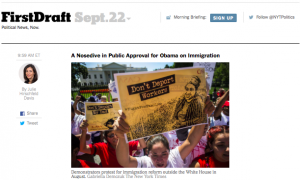

Khan and her colleagues worry Meta may be trying to prevent future competitors from forming by buying them first.ĭepending on your point of view, it’s either ironic or fitting. One example: The Federal Trade Commission, led by Lina Khan, who has called for tougher antimonopoly policies, is trying to block Meta’s acquisition of Within, a VR fitness start-up.
“But regulators, at least under this administration, aren’t going to let him.” “If Mark Zuckerberg could acquire his way out of this problem, as he did by buying Instagram back in 2012, he absolutely would,” Kevin said. The company has become less dominant partly because both the Trump and Biden administrations have taken a tougher stance toward mergers. But I think that claim misses what’s really going on. Some Meta supporters argue that the company’s recent struggles prove that it isn’t the omnipotent force that its critics claim - and that the federal government should go easy on it. He responded by acknowledging it was “pretty basic” and promised “major updates” soon. When Zuckerberg unveiled parts of the company’s platform last week, critics mocked it as looking dated. (Although, if any Meta employees are reading this, I would love to know!)” “VR is still pretty niche, and it’s not clear how much usage apps like Horizon Worlds are getting. “It’s been almost a year since Facebook rebranded itself Meta and announced its big push into the metaverse, and there aren’t a lot of big, obvious wins to show for it,” Kevin said. Zuckerberg feels so strongly that the metaverse - based around the world of virtual-reality, or VR - represents the future of the internet that he renamed the company after it. Since the company went public in 2012, it has been much less innovative. Especially important was its News Feed, which meant users no longer had to spend time searching out other accounts to know what people were posting. That’s a big change from Facebook’s first decade, when it transformed social media. They made their way to Facebook either through acquisitions or, when that didn’t work, outright copying.” “Most of its biggest hits - not just two of its main products, Instagram and WhatsApp, but many of its most-used features, like Instagram Stories - were invented elsewhere.
#Nytimes newsletters how to#
“The company just doesn’t appear to know how to invent successful new stuff,” Farhad Manjoo of Times Opinion has written.

You can read it below.Last month, for example, Kylie Jenner complained to her 361 million followers, “Make Instagram Instagram again.” An anti-Instagram pile-on ensued, as The Times’s Kalley Huang wrote. Her essay is devastating but, in many ways, inspiring. Today’s Modern Love essay echoes that last line: “We are our best selves, even if it’s too late.” When Michelle Friedman learned that her estranged brother was dying, she decided to face old wounds and regrets, and be there for her brother in his final hours. We are our best selves, even if it’s too late. That’s what we do in the end: the messy, tender, heartbreaking things.

Although blindsided by her fatal addiction, I was grateful for those final days in the hospital: feeding my sister, shuffling her to the bathroom, singing show tunes (her eyes always closed) and telling her I loved her. “You need to come home.” I had no idea that Jenny, a 44-year-old suburban mother, would be dead from prescription opioids just six days later. “Your sister is in the hospital,” my mother said over the phone. This week’s staggering Modern Love essay, “ A Last Act of Intimate Kindness,” reminded me of a powerful Tiny Love Story we published years ago, “ What We Do in the End”:


 0 kommentar(er)
0 kommentar(er)
